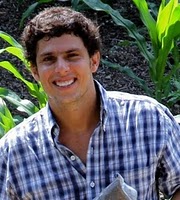In Terris Foundation receives US$$100,000 from the “Grand Challenges Explorations” program for innovative research that will help promote Health and Development.
Ecuadorian Marcos Fioravanti, along with Americans Chris Canaday and Charles Henry, researchers in sanitation and sustainable development, will develop innovative research to promote global health, working for 18 months on the development of an eco-efficient toilet that will not use water or energy and will produce fertilizer for plants, through a simple, economic, safe and user-friendly mechanism.
They are part of the 85 research groups that benefited from the sixth round of GCE, announced on April 28 by the Bill & Melinda Gates Foundation.
“GCE winners are expanding the range of ideas for the most serious challenges in global health and sustainable development, where creative thinking is most urgently needed,” said Chris Wilson, director of Global Health Discovery at the Bill & Melinda Gates Foundation.
To win these funds, it was necessary to demonstrate their proposals through a two-page online application, focusing on one of the following five areas related to health and development: polio eradication, HIV, sanitation and family health technologies and mobile technologies for health.
Fioravanti, Canaday and Henry have been researching sustainable sanitation alternatives for more than 10 years, which allow us to safely dispose of our waste, while avoiding the waste of natural resources. “Conventional toilets are very comfortable and pleasant to use and were viable at one time, but they waste and contaminate large volumes of clean water, consume a lot of energy, and deposit our nutrients at the bottom of the oceans,” says Fioravanti. “40% of the world’s population, 2.8 billion people, do not have access to basic sanitation, but at the same time 1 billion do not have access to the minimum recommended amount of pure water; that is the challenge… how to solve the first problem, without further exacerbating the second?… and that is what we can offer the world by developing a prototype of an eco-efficient, economic and functional toilet,” adds the Ecuadorian.
The three researchers already have several prototypes developed and tested. The challenges now are to make it pleasant, comfortable and safe for the user; and the second is to make it affordable and accessible to the poorest people.” He also mentions that they are “interested in establishing conversations with universities, to identify opportunities for collaboration in the monitoring of certain parameters; and with private industrial and financial companies to identify possible synergies in mass production and financing schemes so that the technology is accessible to everyone; likewise, it would be key to talk with the public sector about the application of this new sustainable toilet.”
The next round of projects begins in September.
![]()

